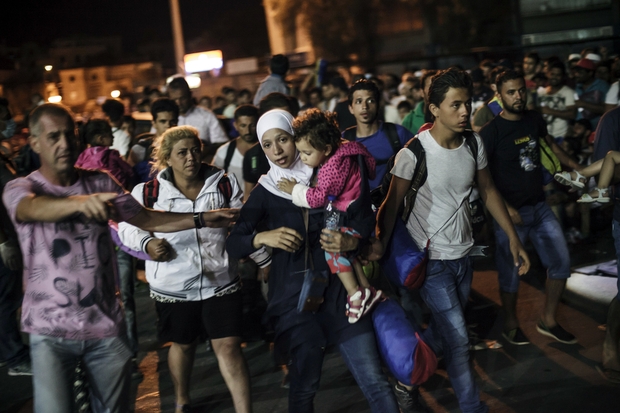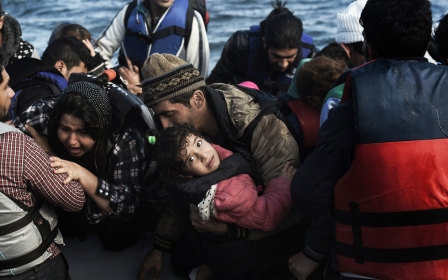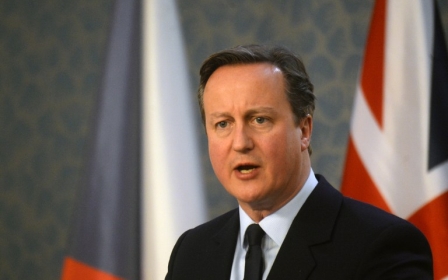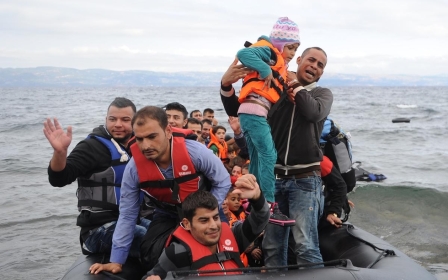Europol says 10,000 migrant children are missing

More than 10,000 unaccompanied migrant children have disappeared in Europe, the EU police agency Europol said on Sunday, fearing many have been whisked into sex trafficking rings or the slave trade.
Europol's news office confirmed the figures published first in the British newspaper the Observer, adding that they covered the last 18-24 months.
The agency's chief of staff Brian Donald said vulnerable children had disappeared from the system after registering with state authorities following their arrival in Europe.
"It's not unreasonable to say that we're looking at 10,000-plus children," Donald said, adding that 5,000 had disappeared in Italy alone.
"Not all of them will be criminally exploited; some might have been passed on to family members. We just don't know where they are, what they're doing or whom they are with."
Donald said there was evidence of a "criminal infrastructure" established over the last 18 months to exploit the migrant flow.
The Observer reported that Europol found evidence of links between smuggling rings bringing people into the EU and human trafficking gangs exploiting migrants for sex and slavery.
"There are prisons in Germany and Hungary where the vast majority of people arrested and placed there are in relation to criminal activity surrounding the migrant crisis," Donald said.
More than 1 million migrants and refugees, many fleeing the Syria conflict, crossed into Europe last year.
"Whether they are registered or not, we’re talking about 270,000 children," Donald told the paper.
"Not all of those are unaccompanied, but we also have evidence that a large proportion might be," he said, adding that 10,000 is likely to be a conservative estimate.
He said many of the children are "visible," and not "spirited away and held in the middle of forests".
Raffaela Milano, Save the Children's Italy-Europe programme director, said that "unaccompanied minors who travel without adults are the most vulnerable group of the migratory flow".
"Many minors, in fact, make themselves 'invisible' to the authorities to enable them to continue their journey in Europe, for fear of being sent back," she said.
The UN children's agency UNICEF also voiced alarm and urged European countries to do more to protect migrant children who are on their own.
"We urgently call for a plan within Europe for unaccompanied and separated children covering family reunification, relocation and other alternatives so that children do not end up being abused and exploited by smugglers and traffickers," it said in a statement.
Many children arrive first on the Greek islands before making the journey to relatives across Europe.
Laura Pappa, president of the Greek charity Meta-Action, a group accompanying children who travel without relatives, said they "face a destiny that is worse than that of the rest of migrants waiting to be relocated".
She said they often have to wait for about seven months to be reunited with relatives and that procedures can be slow and complicated.
"There are some people that present themselves as uncles and take the children. It's not easy in this mess to cross check the identity of the 'uncle.'"
Pappa said the group has helped 3,000 children reach family, but that it "is not enough".
The UK has said it will take in migrant or refugee children who have been separated from their parents.
Despite the constant risk of death and deportation, migrants continue to stream into Europe, risking their lives to escape poverty, repression and conflict.
New MEE newsletter: Jerusalem Dispatch
Sign up to get the latest insights and analysis on Israel-Palestine, alongside Turkey Unpacked and other MEE newsletters
Middle East Eye delivers independent and unrivalled coverage and analysis of the Middle East, North Africa and beyond. To learn more about republishing this content and the associated fees, please fill out this form. More about MEE can be found here.




